Is an Adventurous Attitude a result from one’s environment or a genetic trait? Is the reason I am the way I am because there’s such a thing as an Adventure gene, or because I was raised in a way that promoted my potential for adventurous thinking? My parents have an adventurous spirit, in their own special ways. This could add to the argument for environment. But, my father’s mother, Grammy, had such a great perspective on life. My favorite memory was our frequent exchange:
Me: I want to be like you when I grow up.
Grammy: I want to be like you when I grow up!
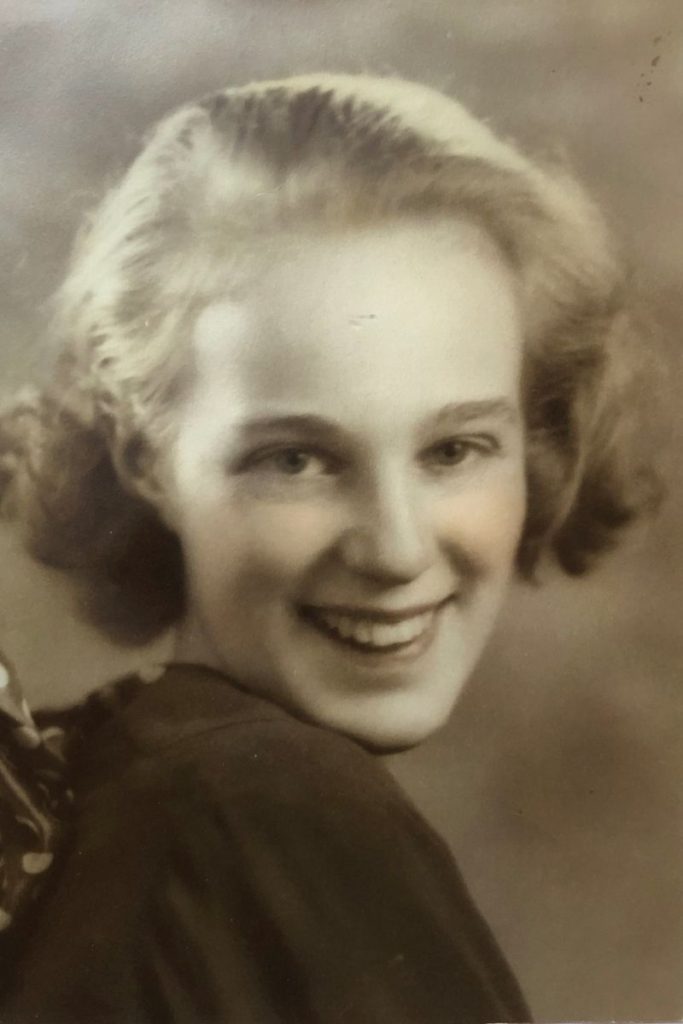
Adventure Gene from my Grandmother?
Where did Grammy get her adventurous spirit from? If I took a DNA test, will it prove I was genetically destined to be an adventurer? This could be an argument for genes impacting how we behave.
Ten years ago, I was doing an exploration of my family tree, trying to see patterns of behavior that could help me understand myself better. During a visit with my Grammy, in her 90s, I asked questions about her side of the family. I realized I knew very little about her family tree. I had brought along a photo album she had created years earlier for her granddaughters (I believe she was being matriarchal about her rationale for why she gave albums only to her female descendants). During our afternoon conversation, Grammy brought out some research that a family member (maybe a cousin of hers) had done. I held on to this packet of information and pulled it out before my trip to Haddam.
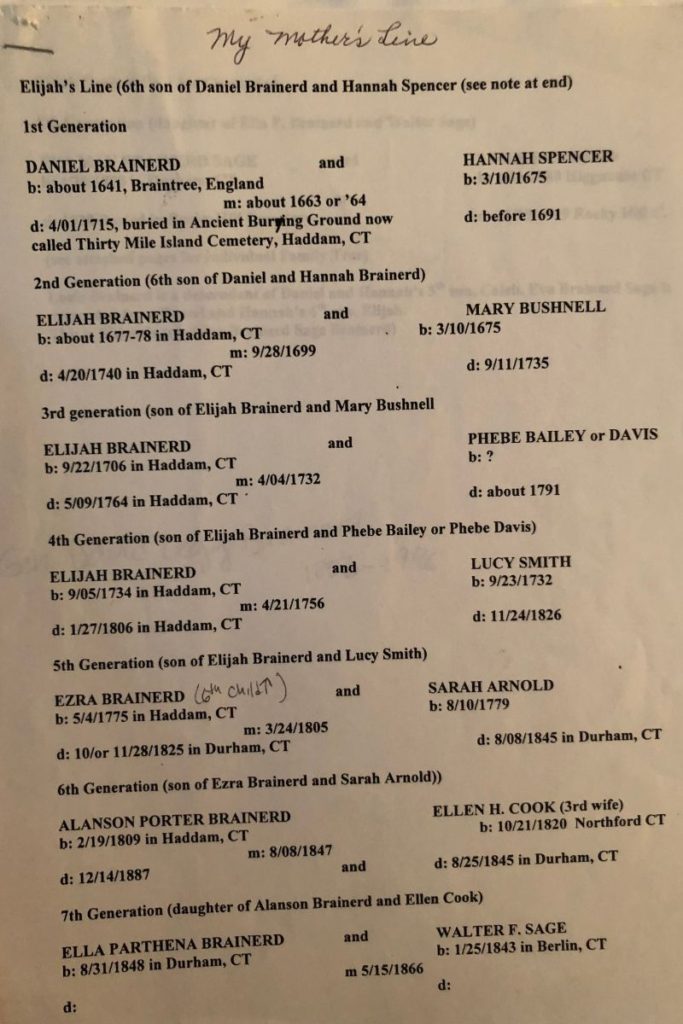
Puritan, Pilgrims and Royalty
What I learned that day was that I wasn’t just an “Irish American mutt,” (a term I used to explain my heritage) but more of one with “pedigree.” Early Puritans and Pilgrims colonizers of the Connecticut River valley are my ancestors.
One name attracted my attention. Hannah Spencer Brainerd, born in Lynn, MA in 1641. A quick online search showed she (and her father) were sued because she turned down a marriage proposal! This set my imagination on fire. The adventures she must have had, partly to survive back in those days, but also to be strong-willed enough to go against her father’s deal! Rumor has it that if I go back far enough from her lineage, I am related to Lady Diana Spencer (you know, that beautiful princess who spawned the future King of England?)
Does knowing all this change how I see myself? Not really. When I mentioned to my cousin that his daughter, like me, qualifies to be a Daughter of the American Revolution, his response was “Cool. That plus a subway token will get you somewhere.” True. It is my opinion that it is genetics AND environment combined that make you, you. Blood lines don’t make a person who they are by themselves, environment plays a bigger factor.
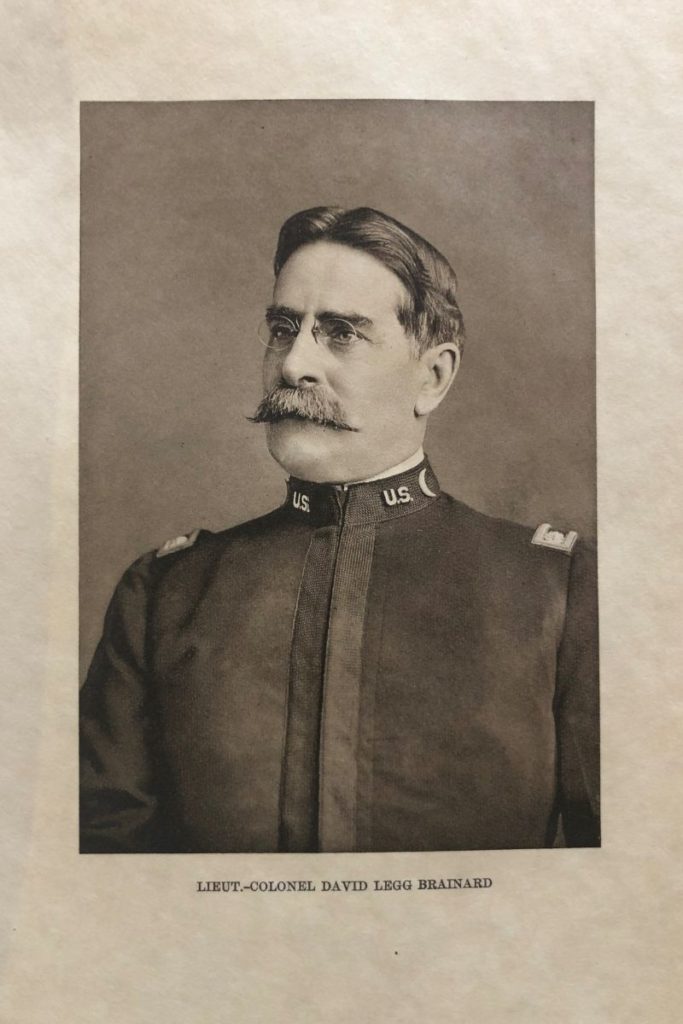
The Adventurous Side of the Family Gene Pool
Grammy’s family history seems to be filled with explorers, fishermen, soldiers and even iconic evangelists. From this perspective, I wondered if there is such a thing as an adventure gene, that created the environment for adventurous behavior that could have been passed down. Grammy, despite having had what could be considered a hard life, always made life seem fun. I’m positive she planted the seeds to what grew into my “Adventure Attitude” towards life – that you can see life as hard or fun, it’s all in the perspective you choose.
Hannah Spencer, 1640-1691
The story of Hannah Spencer has stayed with me. Recently I had a vision for a book or movie that’s based on two things I enjoy – pirates and chocolate. Adding Hannah as the protagonist came to me when I went on a chocolate tour of Boston with my sons. I learned during that adventure that drinking cacao was a big thing back in New England in the late 1600s and through to the American Revolution (and until, basically, coffee took over as the beverage of choice).
Hannah Spencer apparently was 19 years old when she turned down the marriage proposal. I believe she was 23 when she married the pilgrim Daniel Brainerd (maybe 21, but records weren’t great back then.) Again, my imagination has started to create a story about those years in-between the rejected proposal and her marriage, of a strong-minded adventurous woman who lived on a river.
A Day in Haddam, CT
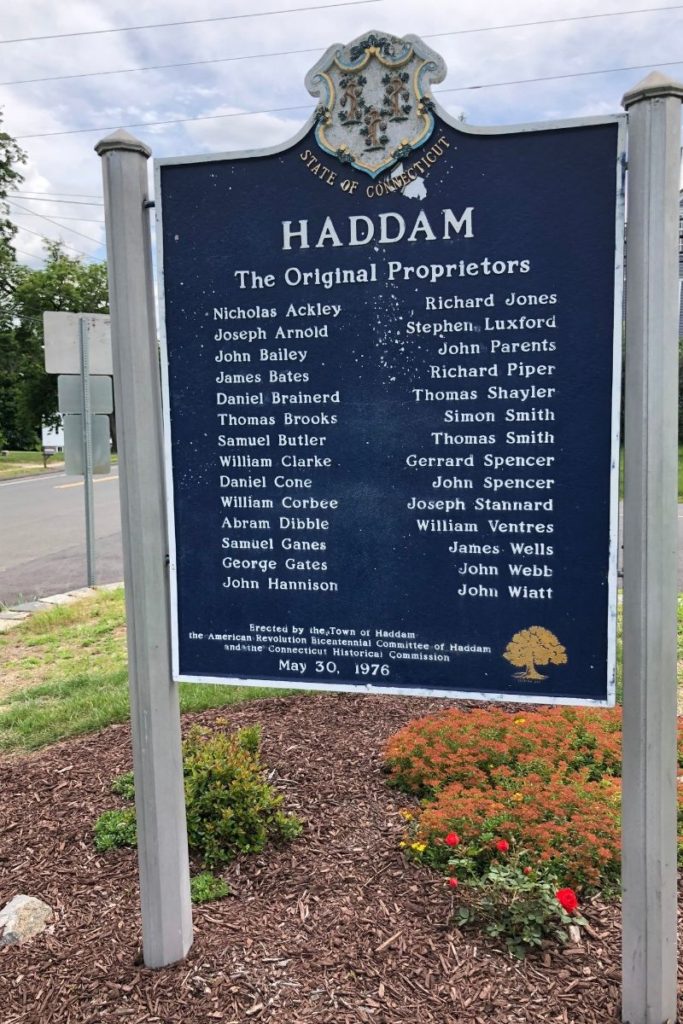
If you discovered this excitement in your family tree, wouldn’t you want to explore too? I wanted to fill in more details, paint a better picture of what her life might have been like back in the early colonist days.
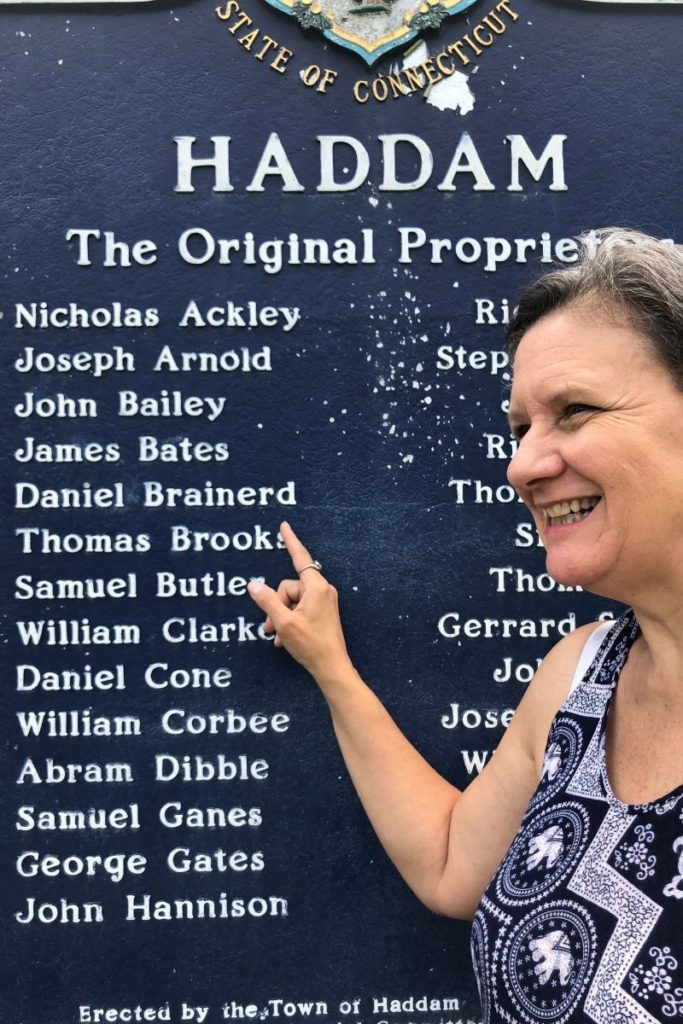
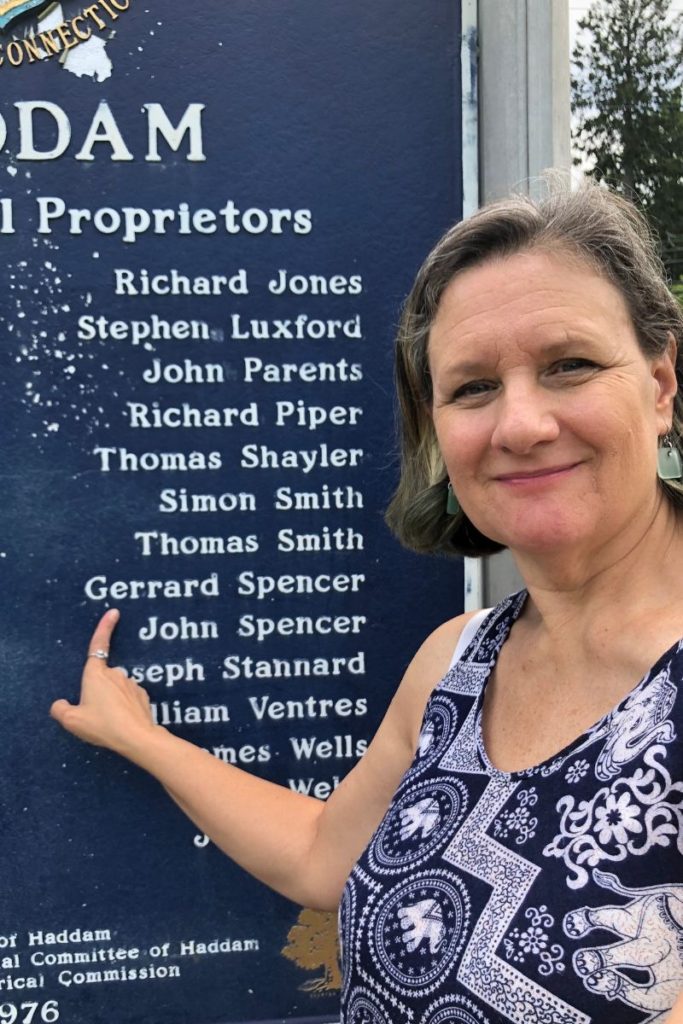
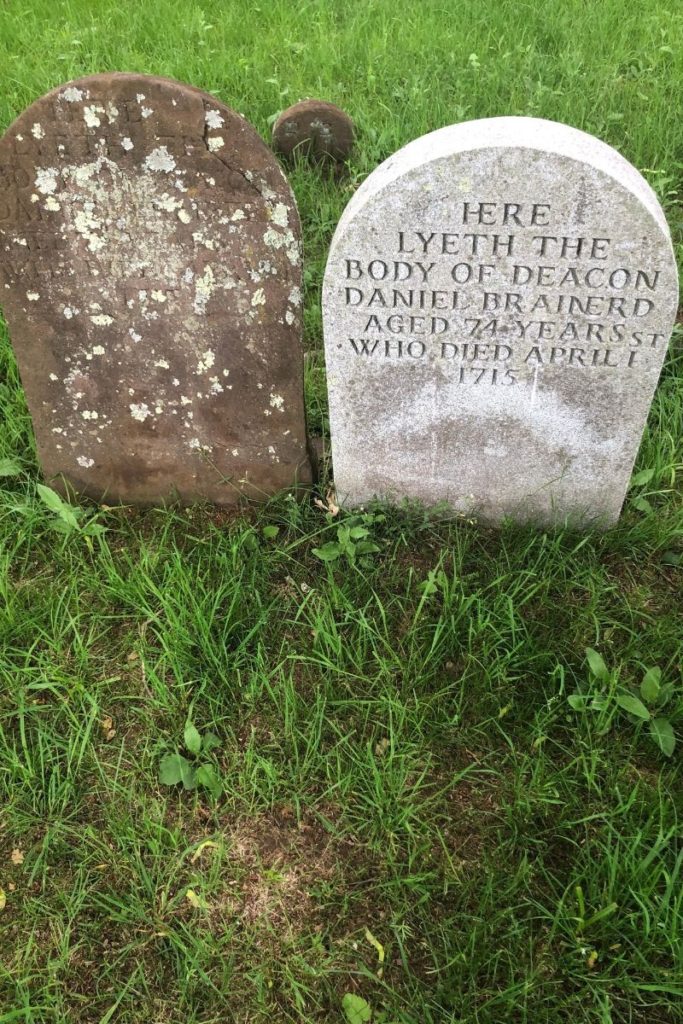
Doing Research
Armed with the packet of photos and the lineage done already, I set out to visit Haddam, CT. Apparently, Hannah Spencer lived here when she met Daniel Brainerd. He was born in England, grew up in Hartford, CT and then granted land near the Spencers. They are listed as founders (or it could be Hannah’s mom, who was also a Hannah Spencer! And Hannah Spencer Brainerd had a daughter she named Hannah!)
The Brainerd Library is located there, and they have a whole room dedicated to the founders of the town. The Director of the Library was kind enough to let me know that more information could be found up the street at the Thankful Arnold House, where the local historians hang out.
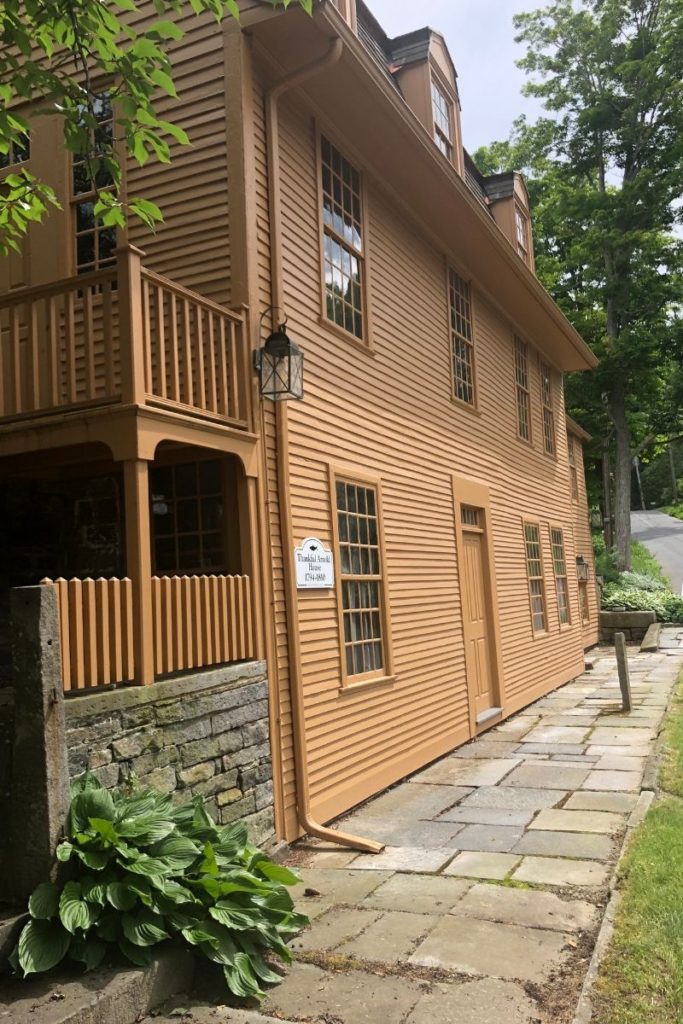
When I arrived at the library, I had no idea where to start. I started randomly looking at all the books and notebooks, enjoying the maps and interesting tidbits. It made me happy to see there was a map of Native American tribes (the original inhabitants!) and books on these early peoples. Native Americans must have helped Hannah, teaching her how to live off the land. It occurs to me I should add this to my novel starring Hannah.
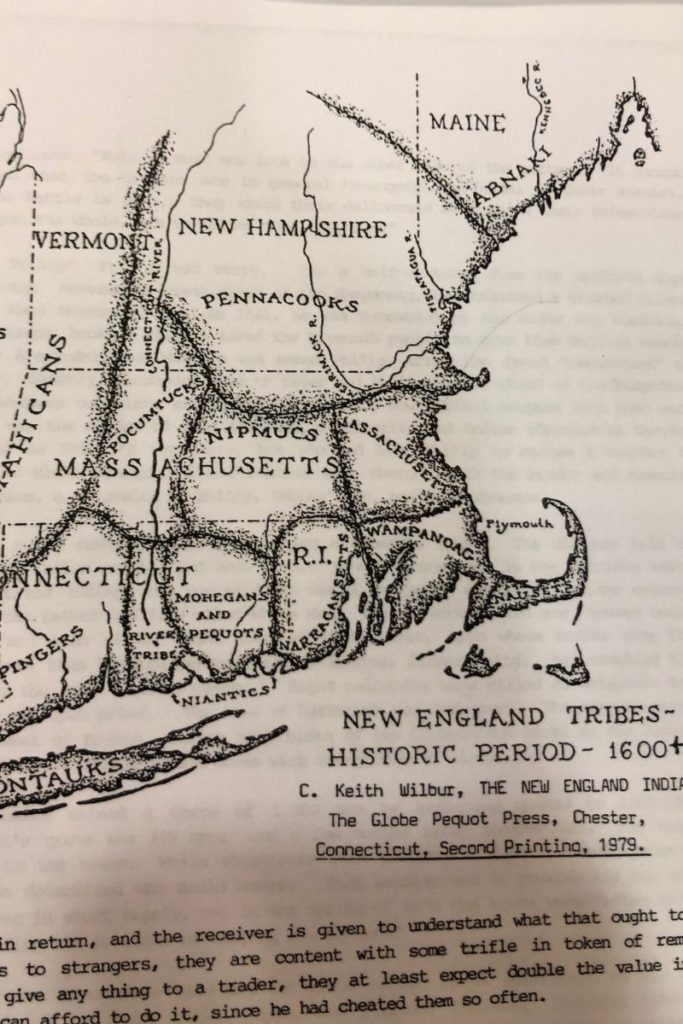
Brainard or Braynard Lineage
The Thankful Arnold House was a short distance away, and near the cemetery and a town sign showcasing the founders’ names. The historian there offered me a tour of the house, which I turned down explaining that my Aunt Sandy and my mother had both lived in homes built in the 1700s and I knew this history well. I told the historian I am a Brainerd descendent. My interest in the museum was to learn more about my ancestry while I was still on the East coast.
She took me to the basement where there was research on all the town’s Founding families. The historian looked at the notes I brought with me. We discussed the fact that my great grandparents were cousins (something like 10X removed). Since these grandparents were both Brainards, I can trace lineage back to two sons (of the seven children) of Hannah and Daniel.
Elijah and Caleb Lines
Since Grammy’s info included more about the Elijah line (her mom’s side), the historian helped me look up Grammy’s father’s side – Caleb’s line. I learned how to trace back through the generations. The book they had there was 1649-1909. The library, I learned, has the updated version (through 2017).
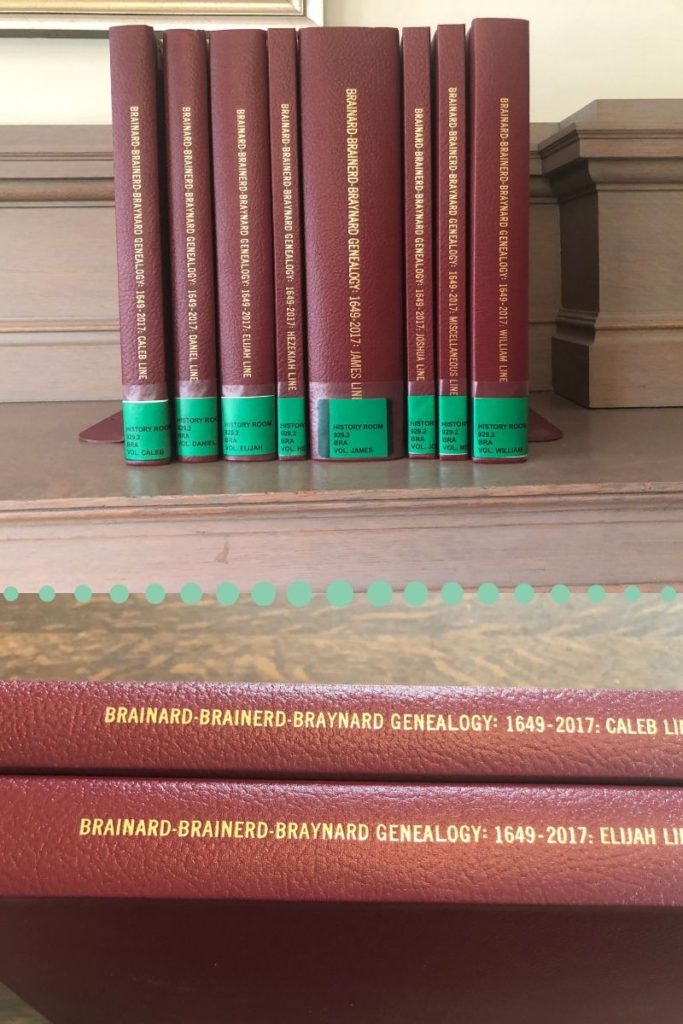
Daniel Brainard Life and Times
While I traced back, and took photos of the pages (to read and map later), I told the historian of my book idea. Inspired, she found a book by another Brainerd descendent. He put together information describing what life might have been like for Daniel (since in the 1600s record keeping was not a priority, and, as I learned, a privilege for wealthier and those of white European background). The historian even went the extra step and downloaded the entire book onto a CD for me to keep!
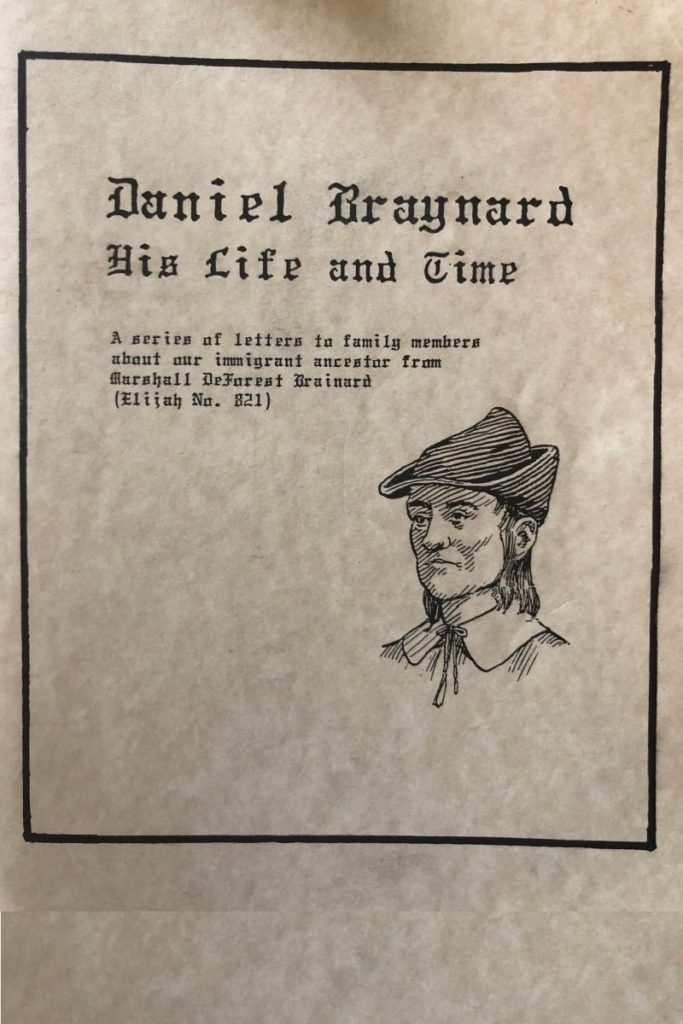
The stories we tell
After all this research, do I feel more connected to my past? Do I feel the probability of Life as Adventure is a gene passed down through generations?
With the focus of ‘find your ancestry’ TV shows and the whole ‘trace your roots’ movement, it feels that if one goes far enough back, we are all connected. In a way that faith tries to teach us – we are all one. What resonated was learning the struggles and joys of generations past. The stories of people, no matter who descended from whom.
No, I don’t believe there is a gene specific to one person having a sense of adventure over others. I believe that we react to the stories we are told are part of our family history. These stories become our own personal stories, or ways we see ourselves. Our personal stories become our motivation for adventures or being averse to them.
Am I like Hannah?
I like to think I have the strength and will that Hannah did, although I am sure I am attributing to her more sense of adventure than she may have had. Hannah’s bravery for rejecting a suitor then marrying a man who had built an unusual house is unusual for those early days. Puritans aren’t known for fun, but I suspect she enjoyed life. However, I may never know for sure if I am like Hannah.
My grandmother also could have been like Hannah. Since my grandmother was part of the environment I grew up with, I believe I am like her. Genetics or environment could both be factors that I have my grandmother’s sense of fun! My story is inspired by Grammy’s story, and her ancestors’ stories.
Do You Have An Adventure Gene?
What’s your story? Have you taken one of the DNA tests to learn more about your past, your blood lines? Maybe you are a distant relative of mine, somehow connected through the original colonists of southern Connecticut. Have you traced your ancestors? Or have you been able to? Or do you prefer just being inspired by the family you choose?

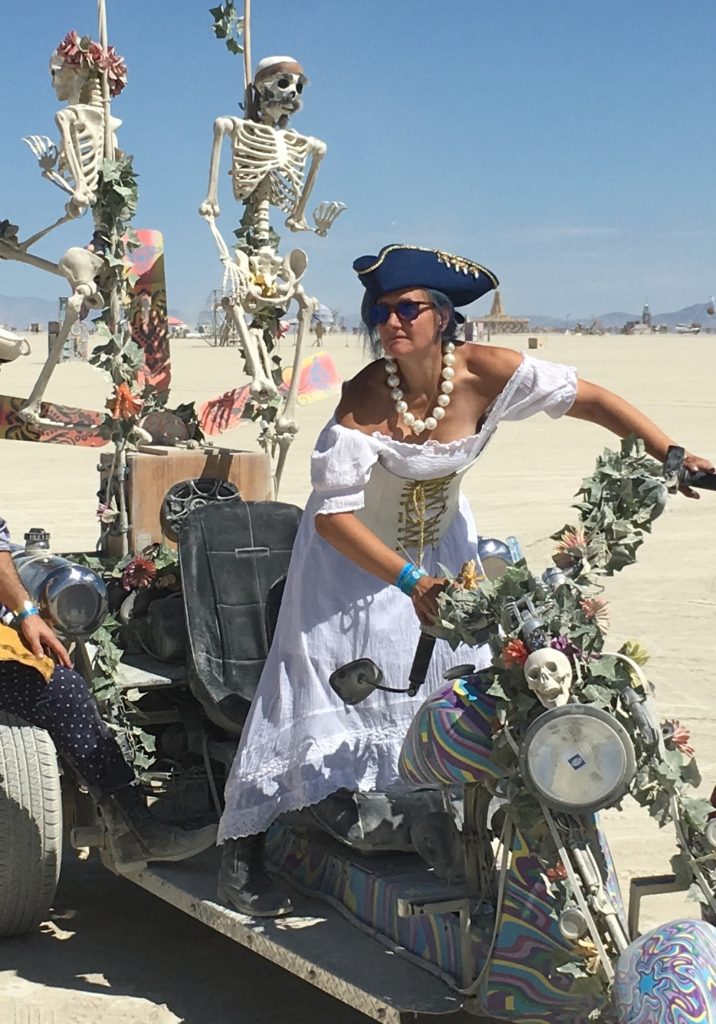 You need more fun & spontaneity in your life, and aren’t sure of next steps or the path to follow. Let’s connect! You could choose a free 15 minute chat, various courses, or even select one-to-one coaching.
You need more fun & spontaneity in your life, and aren’t sure of next steps or the path to follow. Let’s connect! You could choose a free 15 minute chat, various courses, or even select one-to-one coaching.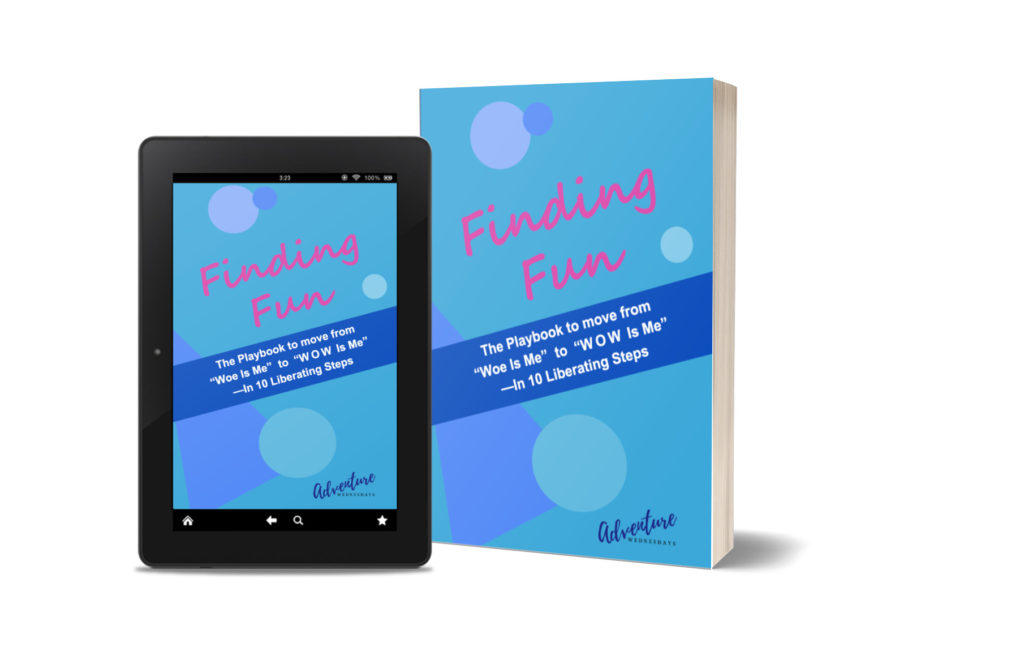
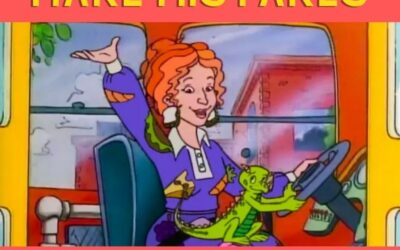
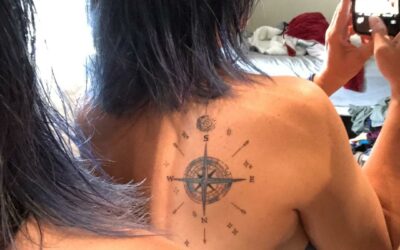
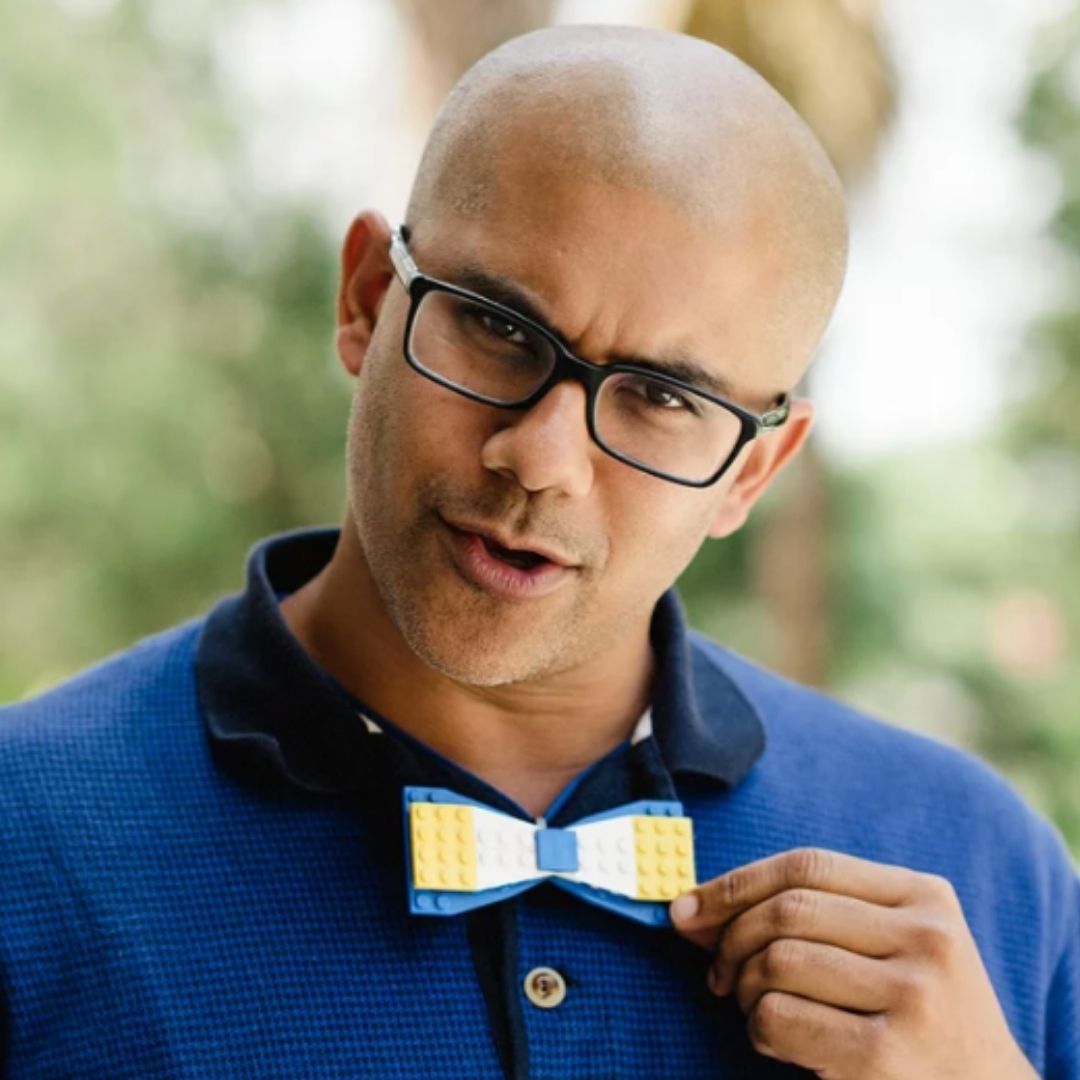
I can sense your enthusiasm and excitement researching your past. I have discovered many similar things in my family. I’ve been on ancestry for years and thrive on the research. I always wonder why I am, what formed me to be me? It turns out my family also consists of many explorers, founders and pioneers of this country. I was excited to find the first revolutionary war veteran, since then I have lost count. I have a British navy captain fighting against newly arrived ancestors around NYC, all from my dad side of the family. It occurs to me that we are the first generation to put all this information together in such great detail because of Internet access. If they only knew!
I am the type of person who always wants to change things, make things better and voice my opinion sometimes where it’s not needed. When I read of my ancestors and realize how difficult it was to start a new life in a country where there weren’t paths to travel on, being scalped by Indians, establishing towns and building mills, I wonder if this gene pool is where my determination comes from? On the flipside, my husband is a calm intelligent man that doesn’t like to make a fuss. His ancestors arrived in the US in the early 1900s from Sicily and Eastern Europe. They changed their names to assimilate, probably dressed proper and quietly blended in bustling cities. Opposites attract!
Thanks Pam. Genetics vs environment has always been an interesting concept. After all my research, I believe it’s both! Learning history through our personal connections is something that keeps me curious!